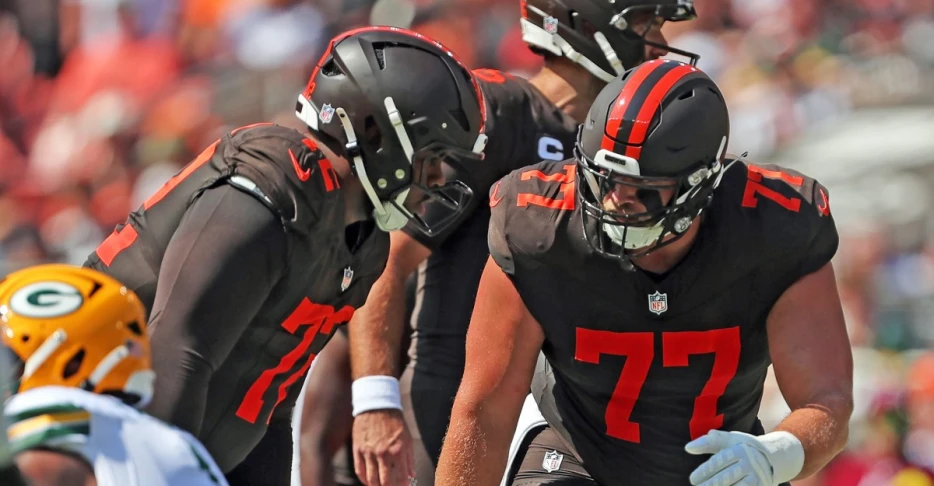
 Dawgs By Nature
Dawgs By Nature
We are a little over 24 hours after the 2025 NFL trade deadline passed and the Cleveland Browns are pretty much the same team. One defender out, one defender in and two open roster spots on the 53-man roster for a team that is 2-6 but technically not out of the running for the NFL playoffs.
Many were surprised by the lack of moves made by Browns GM Andrew Berry, especially with the poor record, trades made previously and an interest in multiple players on the roster. Cleveland also has a ton of players set to enter free agency that they could have dealt away before losing them.
After processing the decisions not made and speaking to many around the team and league, here are the five reasons the Browns decided not to sell off parts at the deadline:
While everyone understood that OL Joel Bitonio should have a say over how he finishes the season and, likely, his career, the team took into account that many players want to continue to fight through the problems and love their time in Cleveland. We heard that this week from TE David Njoku and OL Wyatt Teller:
For a bad team, Cleveland’s roster has some talented players that other teams were interested in. A bad team doesn’t get better by getting rid of those players. Whether it is Njoku, Teller or a few other players, the Browns are interested in getting a few of their players to extend their time with the team. Whether that happens with extensions this season or before the players can talk to other teams in the offseason, keeping them around allows the team to keep those conversations going.
A slightly muddied process but if any of the pending free agents do decide to leave, the Browns could receive higher picks in the 2027 NFL draft than they might have gotten at the deadline. The team also already has 10 selections in the upcoming draft, so adding more picks in 2026 may not have been as valuable as, potentially, getting comp picks in 2027.
One of the contract mechanisms that Berry (and other smart teams like the Eagles) have used to create cap space is void years. Basically, it involves loaning money from the future at a discounted rate toward the salary cap. Teams plan around it and understand that the cap will go up (hence the “discounted rate” because $1 million against a $300 million cap is less than $1 million against a $275 million one) but have to deal with it when the time comes.
Take Njoku, for example. If he leaves in free agency this offseason, Cleveland will have a $24 million cap hit for him to play for another team and would have had some of that even if they dealt him. However, if Njoku signs an extension, the...